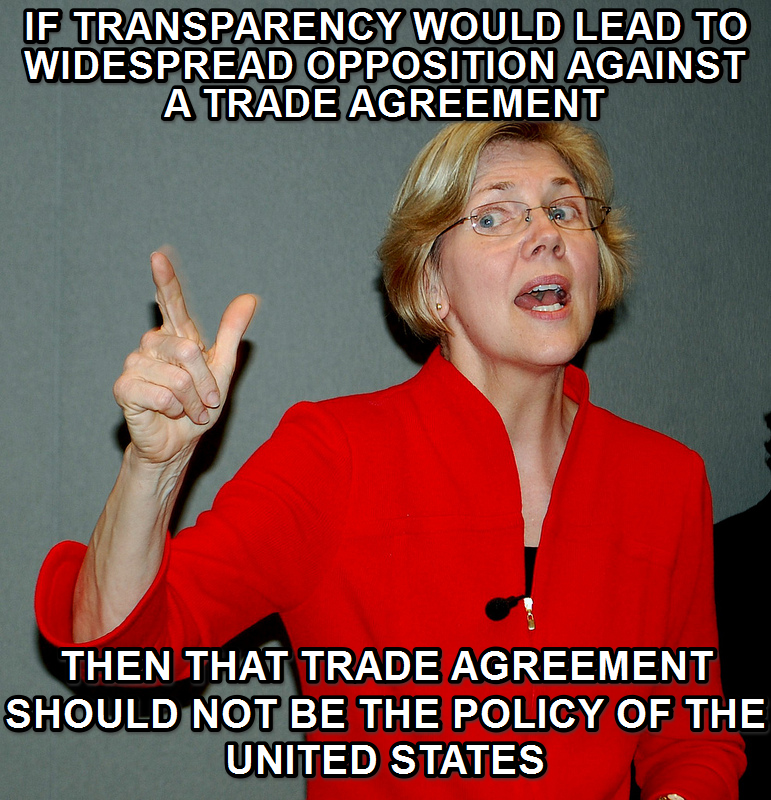Negotiators of secretive TPP agreement clamping down on leaks
Citizens, public interest groups and politicians call for transparency as negotiators try to prevent further leaks of the TPP documents
Citizens, public interest groups and politicians call for transparency as negotiators try to prevent further leaks of the TPP documents. Share this image, and speak out at http://OurFairDeal.org
Vocal opposition to the secretive and extreme Trans-Pacific Partnership (TPP) has gained even more support of late, as U.S. Senator Elizabeth Warren called for“robust public transparency” around the negotiations which have so far been held behind closed doors. In a letter to U.S. Trade Representative Michael Froman, Warren rejected this undemocratic approach, stating that “if transparency would lead to widespread public opposition to a trade agreement, then that trade agreement should not be the policy of the United States.”
One of the most controversial aspects of the agreement is the chapter that concerns copyright, which threatens to reduce our access to information, restrict our ability to innovate, and criminalize our everyday Internet use. As Internet freedom group InfoJustice has reported, this chapter is rumoured to be over 80 pages long, and has been described as “the longest text currently under negotiation” with many of the issues being completely blocked.
Despite the high stakes, we haven’t been allowed to actually look at the text, and have therefore been forced to rely on leaked documents to get an idea of what’s going on. But the negotiators are clamping down on these leaks, and we haven’t seen any updated text since last year.
This determination to maintain secrecy is virtually unprecedented. As InfoJustice point out, even the text for the Free Trade Area of the Americas (FTAA)—a similar agreement that was proposed as an extension of the North American Free Trade Agreement (NAFTA)—was released before the agreement was signed. This was also the case for the equally controversial Anti-Counterfeiting Trade Agreement (ACTA), four different versions of which were publicly released over the course of the negotiations.
But there are no plans to do the same for the TPP, and the negotiations are steaming ahead at an alarming pace. According to InfoJustice, while the official line is that negotiators are no longer aiming to meet their October deadline, the goal is still to conclude the negotiations by the end of the year, despite the fact that “the issues still under contention are massive.”
When the conflicts are so great, and the negative effects of this agreement so extreme, the solution is not for negotiators to put their heads down and plow onward in secrecy with rules that will stifle innovation, criminalize creativity, and limit the possibilities of the open Internet.
We can demand transparency and an end to TPP copyright proposals that threaten the open Internet by speaking out at http://OurFairDeal.org.



 Take action now!
Take action now!
 Sign up to be in the loop
Sign up to be in the loop
 Donate to support our work
Donate to support our work